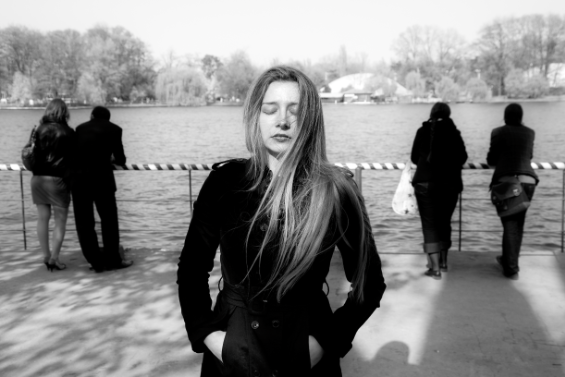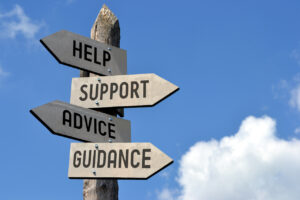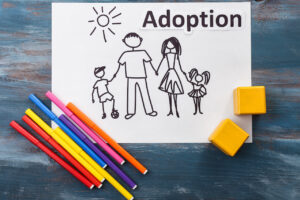Infertility & Isolation: The Hidden Risk to Important Relationships

Cheers, dear readers,
I’m writing you on the other side of a both inspirational yet challenging weekend. This weekend was inspirational thanks to a transformational and life-changing 3-day immersive seminar towards my coaching certification. Yet the weekend was also challenging due to some feelings of isolation, exclusion, and disconnection that I experienced.
The purpose of this blog is to educate, to support, to spread awareness, and to share love, compassion, and empathy towards others who may be going through a similar situation. To that end, I’ll share some thoughts that have helped me and others on a similar journey.
You see, it’s not only the diagnosis of infertility or the subsequent emotional and physical challenges of IVF treatment that can make us feel isolated from friends, alone, or misunderstood (though that certainly can happen.) Some of us face depression, isolation and feeling misunderstood or isolated far beyond the treatment period.
Those who we count as close friends can seem like they have no empathy for what we’re going through, no concept of how “big” this is in our lives. If treatment is successful, it can feel like our loved ones assume that getting there was no big deal. If it is unsuccessful, they can seem utterly, hurtfully oblivious to the hole it leaves, and we suffer increasing isolation because we’re not in the “Mommy Club” that forms the basis of much of their day-to-day.
We all desire the feelings of love, belonging, feelings like others have our back and will always be there. This is an innate human desire that we all experience in much the same way that we innately desire to carry on our lineage and give birth to our sons and daughters. It is in our DNA.
When that support, love, and encouragement is withdrawn or seems to fade away, it can feel extremely painful in ways that are difficult to describe. It can feel like betrayal, or lack of safety, or neglect. While I do believe that infertility, depression and the aftermath of treatment are often misunderstood, I also know from friendships, even with “mommies” that have endured beautifully though my experience, that connection is possible despite different experiences if both sides can practice empathy and invest in those relationships.
As anyone who reads this blog knows, I still struggle with many of those emotional challenges. My parents are gone. I’ve no biological family above or below me (thank goodness for my incredibly supportive and accepting sister!)
Part of the reason that I am pursuing a coaching career is my deep desire to help reduce others’ suffering in the areas of mental and emotional health. I’ve learned the power of community to heal, and to remember something that one of my new coaching friends said to me this weekend:
I deserve to have friends who love, support, and accept me for who I am today.
She asked me to say it with her… out loud. As I did, I broke into tears. I realized that some of my closest friendships have been a casualty of the infertility journey (partly due to the depression and the identify crisis that followed).
I was saddened and frustrated by that loss, and I definitely struggle with how some of my friends acted (or didn’t act) during that period, but I also felt the need to take responsibility and feel guilt for my part in the unfortunate changes in those relationships. I had to acknowledge that those friendships not being as close as they once were was partly due to my own withdrawing to deal with my own depression, identity crisis, and re-inventing myself.
A classmate reminded me to not apologize for things that I cannot control, and I know that I had no control over my infertility diagnosis and the aftermath of depression and grief that ensued. But I’ve also learned from my own experience. Precious relationships don’t need to be undermined. No matter which role you’re in, you can keep those relationships strong.
- If you’re the one going through infertility treatment, let your friends know that while you might need some space, knowing that their support, love, and friendship is still there is extremely helpful.
- If a child-challenged loved one reaches out to you first, try not to shy away from them telling you about the pain that they are experiencing. Be willing to listen and lean into it while not offering any advice or try to “fix” them or their problem.
- And if someone that you care about in your life has experienced infertility even in the past, consider reaching out to them and seeing how they are doing. Tell them you understand how big and important this is. Ask how you can support them on their unique journey.
It does not matter if you have not experienced infertility or depression yourself. Care, compassion, kindness and empathy can all be practiced. It could even save someone’s life. Seriously.
Please join me next week to hear more about my personal journey down the infertility path. I look forward to speaking with you. I wish you the best on your journey.
Warm regards,
Cathy




Another amazing article! Everyone can relate to this post and apply it to their lives, regardless of whether they struggle with infertility or not. I especially love the bit you included from a friend “I deserve to have friends who love, support, and accept me for who I am today.” I think I will try to keep this in mind for myself and others in the future. So glad you are pursuing coaching, Cathy. You will make an excellent coach and change so many lives for the better!
Cathy,
You expressed this challenge so beautifully. I couldn’t agree more that the isolation we feel comes from both the very real external forces of friends pulling away, and our own instinct to withdraw and protect ourselves. Some of those gaps never get bridged, but new people come into our lives, too, and you DO deserve friends who love, support, and accept you.
Sending you big hugs, my dear.
Lisa
Lisa,
Thank you for your kind and thoughtful comment, Lisa. I appreciate you taking the time to read the piece and offer your compassionate words. I can feel that hug! A whoosh right backatcha! You are a lovely and gracious human being. Thanks for all of the ways that you make the world a more beautiful place.
Cathy
Compassion, kindness, and empathy — yes! No matter what side of the fence we’re on, we can give each other this. Thank you for expressing so eloquently and honestly the hurt and isolation so many of us have felt. Your words remind me to (1) better communicate what I need and (2) be more aware of those around me, so that I can offer my support.
By the way, I think it’s amazing that you are taking your very challenging life experiences and turning them around so that you can be an authentic and effective life coach. How powerful this is! Your gift to the world! Brava! And good luck with the completion of your credentials and start of your practice.
Kathleen,
Compassion, kindness and empathy – Oh My! Yes I believe we can give each other this by practicing together and for each other. When we create more understanding, we naturally create more love and then we can watch love grow! It is so natural and human to desire love and belonging. We all have that need. Instead of seeing our separateness, how lovely to see how we are actually all so connected.
Thank you for your kind and encouraging words. I love doing whatever I can to help those who may be struggling with depression, extreme sadness, or even just a difficult patch in their lives. We all have moments of feeling isolated or somehow “not enough.” It’s human nature. But we can support each other by our words as much as by our actions. Thanks you, Kathleen! You are AWESOME!
It is hard to overstate how deeply infertility impacts our lives. Beyond the significant personal toll and the stubborn persistence of the condition there is a lack of social and cultural framework to help us process the recurring losses. I, for one, am grateful for women like you, Cathy, as well as Lisa and Kathleen and others who speak up and out about the radiating effects — on identity and relationships.
I hope one day the first response will be empathy and not astonishment that we dare candidly address the trauma and legacy of infertility. xo
Pamela, you have such an eloquent and powerful way with your words. I am forever amazed at your ability to take a complex topic and put it into amazingly poignant language. I absolutely could not have said this better myself. THANK YOU for sharing your thoughts here to add to the discussion. I also highly value YOU and others who speak up and out about the radiating effects of infertility on identify and relationships, through blogs, books and other literature. Infertility truly does seem to be an “invisible loss” that does lack the cultural framework and social framework to gather the proper empathy and compassion from those who have not had to endure both the experience as well as the aftermath. Why not react with curiosity to understand another’s perspective rather than anger and/or astonishment that the perspective is shared at all?
Cathy, you describe so well what I believe is one of the most colossal secondary losses of infertility – the social isolation. I too have struggled with this – a lot in the past year – and have found the struggles to be far reaching. Especially when it feels as though you, as the who was fundamentally changed by trauma and loss, are the only one making the effort.
I agree with your coaching colleague and believe real friendships will survive the depression, identity crisis and self reinvention that is innate and natural in the face of ALL untimely life altering traumatic loss, not only infertility/involuntary childlessness.
I also hear you on “precious relationships don’t need to be undermined”. I found this to be true being on the other side of traumatic loss when a close friend’s husband passed away suddenly a few years ago at the age of 46. I found respecting her suffering, pain, and eventually new found wisdom as well as her changed self, her need for space, her journey of healing and self reinvention and her different points of view to not only be easy but also enriching. Made me wonder why more people don’t do this in the face of our infertility losses and crisis. To do this for the people you care about is not that difficult.
As part of my new self discovery process I ended up writing a manifesto of sorts that helped me move through old relationships that weren’t working and define and appreciate new ones.
Sarah, thank you for your kind, thoughtful and thought provoking words, comment, and hyperlink. I agree that trauma and loss does change us, thus what I meant by “accept me for who I am TODAY” as that is not the same person as I was a decade ago. We ALL change and evolve. That is part of the human condition.
This was most excellent:
“I agree with your coaching colleague and believe real friendships will survive the depression, identity crisis and self reinvention that is innate and natural in the face of ALL untimely life altering traumatic loss, not only infertility/involuntary childlessness.”
YES! THIS!
Your manifesto article was illuminating, strong, and well-thought out. Thank you for sharing it here. I applaud your efforts, and all that you are sharing with the community. You are AWESOME, Sarah! Thank you! I am so very grateful for you!